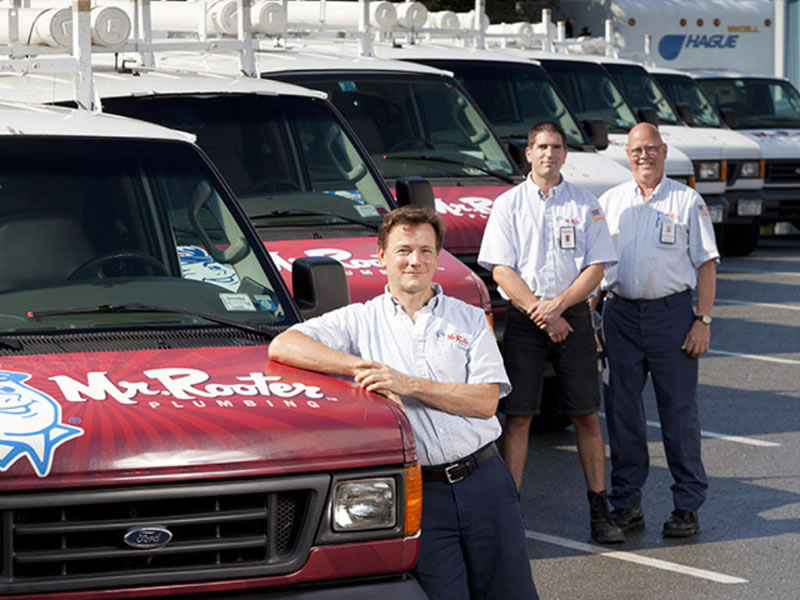Menu
Call This Saturday to Get $50 Off
Do You Need a Plumber in Dallas, TX? Call us Now to Get $50 OFF
4.8 / 5 Ratings based on 1384 reviews Great Plumbers, Great Reviews
Call This Saturday to Get $50 Off
Plumbing systems are built to stand the test of time, but they have to be assessed regularly to ensure they continue to function efficiently and avoid potential problems. Just like taking care of your body is important, keeping an eye on your plumbing system’s health is also important. That means thoroughly examining its condition, functionality, and compliance with relevant building codes and safety standards. Whether in a home or a business, plumbing inspections are an essential part of keeping a plumbing system in tip-top shape.

Plumbing inspections can be broken down into two types: residential plumbing inspections and commercial plumbing inspections. Both are meant to ensure the safety, functionality, and compliance of plumbing systems. However, they are distinctly different in several ways. In today’s post, Mr. Rooter Plumbing looks into the differences between residential and commercial plumbing inspections.
Residential Plumbing Inspections: These inspections are conducted in single-family homes, apartments, and other residential properties where people live. The plumbing systems in residential properties are typically smaller in scale and designed to serve a limited number of occupants.
Commercial Plumbing Inspections: These inspections are performed in commercial and industrial buildings, such as offices, factories, restaurants, and retail establishments. Commercial properties often have larger and more complex plumbing systems to accommodate a higher volume of occupants and specialized needs.
Residential Plumbing Inspections: These inspections focus on smaller, more straightforward plumbing systems. Common areas of inspection include water supply lines, drain and sewer systems, fixtures, and water heaters.
Commercial Plumbing Inspections: Commercial plumbing systems are typically larger and more extensive. Inspections may cover not only the basics but also more complex systems like fire suppression systems, industrial equipment, and specialized commercial fixtures.
Residential Plumbing Inspections: The primary purpose of residential inspections is to ensure the safety and functionality of plumbing systems for homeowners and occupants. Inspections may also be conducted during the sale of a home.
Commercial Plumbing Inspections: Commercial inspections are often required by local authorities and building codes to ensure the safety and efficiency of plumbing systems in commercial properties. They may also be performed for insurance purposes or as part of routine maintenance.
Residential Plumbing Inspections: These inspections are usually less complex and can often be carried out by licensed plumbers or general home inspectors with expertise in residential systems.
Commercial Plumbing Inspections: Commercial plumbing systems are more intricate and may require specialized expertise. A certified commercial plumbing service may be needed to assess and address the unique needs and complexities of commercial plumbing.
Residential Plumbing Inspections: Residential plumbing inspections are subject to local building codes and regulations specific to residential properties. These codes are generally less extensive than those for commercial properties.
Commercial Plumbing Inspections: Commercial plumbing inspections must adhere to more comprehensive and stringent building codes and regulations tailored to the commercial and industrial sectors. Compliance with fire codes, accessibility requirements, and other specialized regulations is often necessary.
Mr. Rooter Plumbing is the go-to plumbing company for residential and commercial plumbing inspections. We’ve been providing top-notch plumbing services to residential and commercial clients for over 50 years. Our competent plumbers are knowledgeable, experienced, and capable of handling both small-scale residential plumbing inspections and large-scale commercial plumbing inspections.
The DIY spirit in the U.S. is more alive than ever, with…
Read More+The drainage system in your home is vital for maintaining convenience and the well-being of…
Read More+Leaks are the most common plumbing problems in residential and commercial buildings. However, minor…
Read More+Did you turn on your water, but it had a weak flow…
Read More+